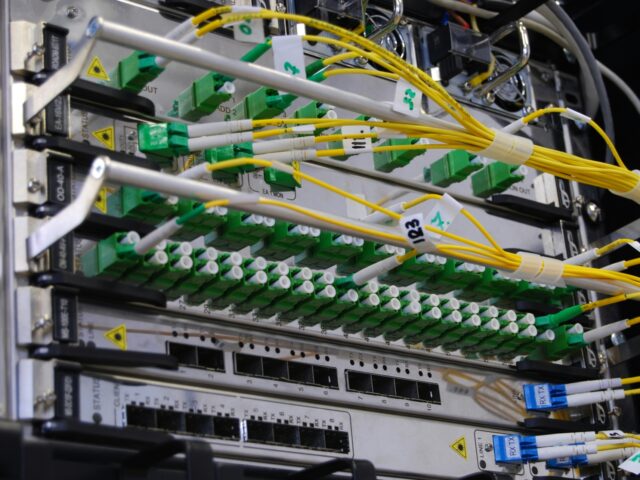Whether sabotage or innocent accident, suspicion immediately fell on the much-discussed wave of Russian-backed acts of sabotage against European infrastructure when an internet backbone cable linking Sweden and Finland was cut twice overnight.
Thousands of Finnish homes were left without data connectivity on Tuesday morning after a submarine fibre optic cable linking Sweden and Finland was cut in two places on land overnight. The damage took place in two separate suburbs near the Finnish capital Helsinki, in Espoo and Vihti, and the infrastructure’s owner has dispatched teams for repairs they said.
Sweden’s Minister for Civil Defence Carl-Oskar Bohlin told broadcaster SVT “sabotage is suspected” but the facts are not yet clear, nevertheless “we are taking this seriously”, he said, remarking Finnish Police are leading the investigation.
Finnish Police are investigating but say they have not launched a criminal probe yet. One of the breaks has been attributed to a man digging up the ground with a backhoe (‘JCB’ type digger) and may have been accidental, the telecom company said.
Niklas Ekström of cable owner Global Connect told Helsingin Sanomat that accident or not, it is odd to have two breaks in different places at the same time: “Cables break for many different reasons. It is certainly unusual for two cables to be damaged at the same time.”
Among the agencies notified in the response to the damage were the Swedish government’s postal and communications ministry, the Swedish armed forces, and the Norwegian Agency for ‘Social Security and Preparedness’.
While these incidents may yet turn out to be pure coincidental damage, European governments remain on high alert for acts of sabotage, given several similar events have taken place recently. Two submarine data cables connecting connecting Finland, Germany, Lithuania, and Sweden were cut last month by a Chinese-flagged ship, with Russia eyed as the motivating force behind what is thought to have been a ‘hybrid war’ attack.
While cutting cables in incidents that could be plausibly denied is less spectacular than other attack vectors open to malign actors, Western nations are ever-more reliant on high speed internet traffic for their economies, and to manage their infrastructure.
In another case of a type becoming more frequent across Europe and which is so commonplace to barely make the headlines domestically, never mind internationally, Sweden saw a telephone exchange damaged in Öjaby, Växjö in the south of the country last week. The perpetrators are said to have scaled a high barbed wire fence before wrecking equipment inside, which police said was not merely a matter of cable theft but deliberate sabotage.
As previously reported of such attacks, which have been attributed in some cases to the hard left:
Data infrastructure including telephone exchanges and fibre optical cables, and supply power are also known. In 2019, a radio station and radio transmitter were burnt down in France. In 2020, 50,000 people lost internet access in the greater Paris region after telephone and data cables were cut, the culmination of a weeks-long campaign of such sabotage against information infrastructure. It was suspected the “ultra-left” could have been responsible.
In 2021, a series of apparently connected attacks were directed at telephone and internet services in France, with sabotage on several nights seeing data company work vans burnt out, fibre optic cables destroyed, and a communications tower destroyed. Left-wing actors took credit for the acts, saying in a statement: “it is not to protest against 5G in particular but in a broader context, fighting against the techno-world… We want to salute all the arsonists who are acting in the shadows at the moment and repeatedly beating this technological hell.”

COMMENTS
Please let us know if you're having issues with commenting.